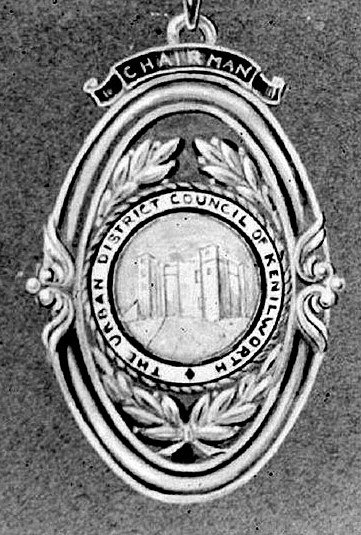Elected (12 seats)
| Candidate | Party | Votes |
| *Charles Randall | Independent | 697 |
| *Edward Hodges | Independent | 622 |
| *Edwin Gee | Independent | 530 |
| *Joseph Crouch | Unattached | 460 |
| William Dencer | Local Trades & Labour Council | 456 |
| *Charles Carter | Independent | 436 |
| *Andrew Hacking | Unattached | 434 |
| Ernest Nixon | Independent | 429 |
| Warrington Bennett | Independent | 426 |
| *James Jackson | Independent | 421 |
| Edgar Andrews | Unattached | 415 |
| *Henry Griffiths | Unattached | 357 |
Not Elected
| Candidate | Party | Votes |
| Charles Roberts | Local Trades & Labour Council | 355 |
| Charles Satchwell | Independent | 345 |
| *John Clarke | Unattached | 343 |
| Horace Southall | Local Trades & Labour Council | 268 |
| Edward Jeacock | Local Trades & Labour Council | 257 |
| Walter Crook | Local Trades & Labour Council | 219 |
| Arthur Constable | Local Trades & Labour Council | 209 |
| William Franklin | Independent | 195 |
| Frank Harris | Unattached | 97 |
*denotes retiring councillors
Turnout 1200 (49%)
Electorate 2440
TWO SEAT MAJORITY FOR INDEPENDENTS
There were two principle parties involved in this election. The ‘Independents’, comprising of nine candidates, who in their joint address stated that they stood for ‘Economy and Efficency’. They also pledged themselves to supporting the housing scheme already in hand, improvements to sanitation, repairs and the up-keep of all the roads. Seven of their nine candidates were elected.
The other party of six candidates, calling themselves the ‘Local Trades and Labour Council’ were less successful. Mr Roberts (carpenter), Mr Southall (victualler and engineer), Mr Jeacock (billposter), Mr Crook (carpenter), Mr Constable (railway signalman) plus Mr Dencer (draper), who was their only successful candidate.
The remaining six candidates were of no specified party organisation. They were totally unattached to the two other groups. But this did not seem to put off voters, as four of their candidates were elected. However, John Clarke, who was elected in 1913 and remained on the council throughout the war, lost his seat
Two members from the old council, Growse and Perkins did not seek re-election. Arthur Street had been nominated to stand in the election but had to withdrew due to health problems. He had stood down as chairman in 1916 because of illness but remained on the committee throughout the war. Another nominee, Henry Rowen, of Whitemoor died following a short illness only two weeks before the election. He had worked at the Whitemoor Brickworks for 30 years, and 20 years as foreman.
The weather on election day was fine, and there seemed very little enthusiasm shown, except in the vicinity of the polling stations. The Independents and the Local Trades each had a committee room in School Lane and most of the candidates were present along the street. A few motor-cars were busy during the day, some of them flying small union jack flags but it wasn’t clear to people who they were supporting. There was an eagerness on the part of canvassers to secure the votes of ladies, who turned out well in comparison to the men.
It was stated in the local press that the ‘middle classes’ had mostly voted during the morning and afternoon but it was in the evening that the workmen, many of which worked in Coventry, recorded their votes.
The results were declared at 11.30am on the following day outside the council house in Upper Rosemary Hill. But with heavy rain falling, and a small crowd present, returning officer Mr Hadow, quickly read out the figures and decided that no speeches would be made.
KUDC Councillors
7 Independents (Bennett, Carter, Gee, Randall, Hodges, Nixon, Jackson)
4 Unattached (Crouch, Hacking, Andrews, Griffiths)
1 Local Trades & Labour Council (Dencer)
Chairman
Chairmans Chain of Office – Courtesy of Warwickshire County Records Office. (ref. PH (N) 600/147/3)
